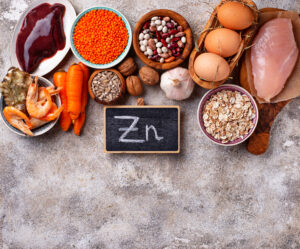Athletes must replace the calories they burn every day through exercise with foods rich in carbohydrates, protein and fat – with carbs and protein serving as primary fuel sources during workouts, and fat being crucial in endurance competitions.
Carbs are essential fuel for exercise. Opt for whole grain products, fruits and vegetables when selecting carbohydrates as part of a balanced meal.
Carbohydrates
Carbs are essential in athletes’ diets to maintaining stable blood glucose levels and optimising glycogen stores, with consistent consumption being proven to enhance performance/capacity during exercise sessions lasting over one hour; carb mouth rinsing or rapid delivery via high glycemic index foods may further help this. 30-60 g of carbohydrates consumed per hour appear suitable; events of higher intensity/duration could benefit from up to 90 grams consumed hour-1 of carbohydrates.
Muscle glycogen serves as the main energy source during physical activity, and its depletion can contribute to muscle fatigue and reduced strength/power production. Therefore, carb loading and replenishment should be an integral component of training for both aerobic and anaerobic activities.
Ideal, athletes should consume carbs immediately following exercise in order to maximize glycogen replenishment and muscle protein synthesis. Delaying feeding for several hours after exercise may reduce glycogen resynthesis by up to 50%; to minimize potential stomach discomfort and water retention issues, athletes should try limiting how many carbohydrates they ingest at one sitting; large quantities can lead to stomach upset and water retention issues. Furthermore, athletes should select carbohydrates easily absorbed and utilized by their bodies (e.g. fructose or glucose) so as to prevent further distress caused by carbs (e.g. fructose and glucose).
Protein
Alongside carbohydrates, protein is also an integral component of an athlete’s diet. Protein serves as the building blocks for muscle tissue formation and recovery from intense exercise sessions. Furthermore, protein plays an integral part in energy metabolism processes and may even increase endurance performance.
An effective sports diet starts with proper planning and nutrition. Athletes must consume foods rich in unrefined carbohydrates like whole grains, vegetables and fruit as well as healthy fats like nuts, nut butters and oils like olive or canola oil for optimum performance. In addition, sufficient water should also be consumed to ensure adequate hydration levels are met.
Athletes engaged in shorter exercise bouts should consume carb-rich foods within 30 minutes before exercise to improve performance and stave off fatigue, such as eating or drinking carb-rich food like bagel with low-fat milk, cereal with low-fat milk, fruit salad with yogurt or pasta dish topped with tomato-based sauces.
Endurance athletes have unique protein needs that can be estimated by multiplying their bodyweight in pounds by 2.2; the resultant daily protein requirement should then be consumed through lean meats, poultry, fish, eggs, dairy (such as yogurt and cottage cheese) and legumes – and ingestion of proteins and amino acids before, during or after exercise appears to enhance training adaptations (Kerksick et al. 2008).
Fat
While protein is the primary energy source that fuels exercise and supports muscle repair, fat can also provide energy that directly influences athletic performance. Therefore, selecting unsaturated fatty acids from nuts, seeds, olive oil, avocados or fish as sources for maximum impact is paramount.
Carbohydrates are broken down during digestion into sugars (mostly glucose) that serve as the main energy source during exercise, with glycogen stores used to generate ATP during workouts, thus necessitating sufficient stores in order to perform at their optimal level. Athletes should consume carb-rich foods regularly as well as an ingestion of high-carb meals or snacks four to six hours before exercising to maximize glycogen stores and ensure optimal performance.
After exercise, athletes are advised to consume a meal or snack containing complex carbs with moderate to high glycemic index ratings and proteins from complex sources like whole grains, quinoa, starchy fibrous vegetables and oats in order to replenish muscles with glycogen and promote recovery.
Some athletes opt for the ketogenic diet, yet no scientific evidence shows it to improve endurance or sprint/strength performance. Furthermore, this diet may lead to reduced energy availability and an increase in dependence on glucose for fuel which could further diminish performance.
Vitamins and Minerals
An athlete’s diet must contain adequate levels of vitamins and minerals in order to stay healthy, with essential calcium intake supporting various processes involved in performance and recovery during exercise. Examples include calcium, vitamin D and iron; all three nutrients being key players when it comes to recovery after physical exertion. Calcium plays an essential role in bone health as well as muscle contraction and nerve conduction. Dietary calcium sources include dairy products (milk, yogurt), leafy green vegetables and fortified grain products as dietary sources of this mineral.
Dietary calcium should preferably be consumed as carbonate or citrate for maximum absorption, and any supplements should be taken with meals for optimal absorption. Vitamin D, an essential mineral for bone strength, can be found in fortified foods or supplements; while antioxidant vitamin C promotes healthy immune function. It is strongly advised that athletes consume nutrient-dense whole foods including an assortment of colorful fruits and vegetables, lean proteins, and healthy fats in order to meet their vitamin and mineral requirements.
Overall, athletes generally face minimal vitamin and mineral deficiencies; energy needs can usually be met through appropriate food intake using a “food first” approach and supplementation only taken if there is an existing deficiency such as Vitamin D or Iron. However, for certain individuals – specifically those who suffer from poor energy intake or digestive absorption issues – nutritional intervention may be required.





